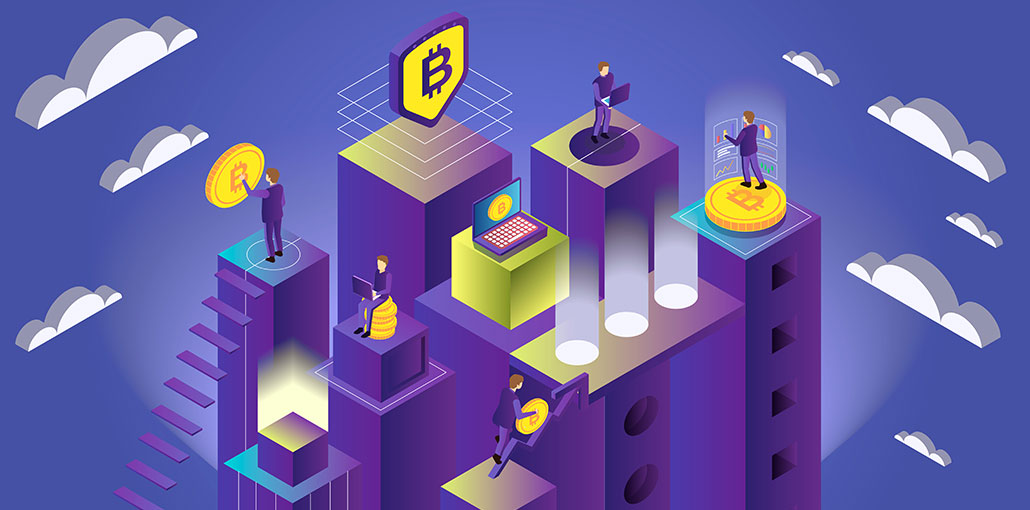The key to a more connected and developed world is digitalization. Digitalization has opened up many business opportunities and played a major role in making people’s daily lives more comfortable, luxurious, and connected. The 21st Century has seen the greatest benefits of digitalization. This includes the adoption of IoT technology, 5G technology, and the introduction of artificial intelligence (AI) to human life.
Blockchain is a revolutionary and groundbreaking technology that opens up new opportunities for businesses and helps to secure the digital economy. Blockchain technology was initially created to support Bitcoin’s first cryptocurrency in 2008. However, it has evolved to be more than a platform for digital currencies. Due to its rapid adoption, and the many benefits it offers, blockchain technology has become a hot topic in recent years.
This article will provide information on blockchain technology and explain why it is attracting heavy investment from the top industries. Let’s first briefly explain what blockchain is, and why it’s considered to be a revolutionary technology before we get into the main topic.
A Brief Review of Blockchain Technology
Blockchain is a database that stores all information. It can include transaction details, a list of stakeholders, personal data of employees, details about bank account holders, and more. A blockchain can store any data that is considered sensitive and needs to be evaluated by multiple people.
Blockchain can be described as a distributed, decentralized ledger that stores information as blocks. Each block is linked to the previous one, so all blocks in the ledger are permanently linked to each other. When a block’s information storage capacity is exhausted, the next info is stored in another block that is chained to it.
Also read: What Are Benefit Utilize Blockchain Technology In Any Industry
The blockchain’s most important feature is the ability for any member to access data stored in digital blocks. The blockchain is a secure and reliable database that cannot be altered once the data has been stored in blocks. The transparency and visibility of the system are greatly improved by the fact that all participants can see any changes made to the chain.
Blockchain is highly secure and can be used to save sensitive transaction details or classified information that only a specific group should have access to.
Blockchain Technology Market Insight
Blockchain technology is a revolutionary technology. Its market value is the best proof of its success. Statista predicts that global spending on blockchain solutions will reach 6.6 billion by 2021. Meanwhile, 19 billion dollars are anticipated by 2024.
Another survey found that the banking sector, with a 30% market share, was the largest contributor to global blockchain market revenues in 2020. Process manufacturing had a 12.4% share. Let’s find out which industries are most benefiting from blockchain technology.
Top Industries Revolutionized by Blockchain Technology
Major sectors have started to invest in blockchain technology because of the promising benefits such as security, transparency, and building trust in systems. Let’s take a look at the major industries that depend on blockchain technology for their most important tasks and reliable results.
Banking
As the largest player in the global blockchain market, the banking and finance industry accounted for 30% of the total global market revenue. Many people are familiar with cryptocurrencies like bitcoin, dogecoin, and ethereum that have completely disrupted the financial industry. A digital currency that uses blockchain technology is cryptocurrency.
It is a distributed, decentralized network that spans multiple computers. It acts as money that can be used for services or to buy goods. It differs from traditional currencies in that it is not physically represented and is not issued by government authorities or third parties. Cryptocurrencies can be secured with cryptography, which is the most secure method of security.
Blockchain-based cryptocurrencies are virtually impenetrable to manipulation because it is almost impossible to alter the blocks of data that are stored there. They are protected using cryptographic hashing. The blockchain also stores details of all transactions, which can be viewed and accessed by any participant.
This gives full transparency. Major companies such as Starbucks, Virgin Galactic, and Shopify accept Bitcoin as a payment method. Blockchain technology can be used to record transactions and customer details to increase transparency and security, while cryptocurrencies are left out.
Cybersecurity
Like every coin, there are two sides to it. While the increased reliance on the digital world and the internet has undoubtedly improved the quality of people’s lives, it also has its downsides. It is now very easy to obtain personal information through social media, as well as other platforms like online banking apps or apps with payment portals. These platforms have made it easy to access the personal information of anyone through social media. The FBI’s Internet Crime Complaint Centre received 791,790 complaints in 2020 about internet crimes. This is an increase of 300,000.
Blockchain technology has emerged as a tool to protect systems and the public against cybercrime in the cybersecurity sector. Platforms like eCommerce and social media use blockchain-based storage solutions for sensitive personal information. We know that only the parties with the access id to a specific blockchain can view the data in it.
Therefore, outsiders are unlikely to have access. Even if an outsider gains access to the system, it is almost impossible to gain access to all user information. This reduces the risk of data theft and the threat to the security of millions of users. Businesses can manage user information much more easily by using blockchain solutions.
Logistics and Supply Chain
Management of the supply chain is a difficult task. Even minor mistakes can cause a business or customer loss. Management becomes more difficult when supply chains deal with perishable and precious metals.
The management of the supply chain can be compromised by incidents such as mishandling products by the logistics department, vendor Fraud (i.e. the vendor sends less than ordered, deploys degrading materials, or theft). Organizations are looking for effective blockchain solutions to prevent such incidents and minimize potential losses.
The most efficient solution to supply chain problems is likely to be a blockchain solution. Blockchains can be used to track supply chain data, such as quantity, price, date and dispatch, shelf life, expiration dates, certification, dispatch location, destination, number intermediate stops, and any other relevant information. To improve transparency and ensure everyone is on the same page, access to the blockchain must be given to all personnel involved in the supply chain.
RFID tags are usually placed on all items in the supply chain. They contain all details about the item, such as date of manufacture, expiry date, batch numbers, etc. These RFID tags are unique ids that can be stored on the blockchain and tracked to increase traceability and ensure every item arrives at its destination in the best time and quality. Data stored on a blockchain can’t be altered, so all essential information about the supply chain cannot be altered. This significantly reduces the risk of fraud and counterfeiting.
Also read: How Blockchain Technology Helps Develop Smart Buildings
Non-Profit Organizations
Potential donors are always suspicious of non-profit organizations because they lack transparency and control over who and what financial aid is granted to them. Organizations are now using blockchain technology to increase trust and transparency in their operations and administrations, as a result of recent fraud cases and money laundering.
Blockchain solutions can be used by NGOs to store a variety of data, including donor information and details about the amount donated as well as the details of beneficiaries who have received assistance from the organization.
This blockchain solution can be accessed by all Non-profit members including beneficiaries and donors. This allows NGOs to verify that the amount requested by a donor for donation is the same as the amount received. Donors can also check the amount granted and who it was granted to. This transparency makes it easier for NGOs to function properly and is more trustworthy.
To Conclude
Blockchain is a technology that has revolutionized 21st-century society. It can be used in conjunction with AI, IoT, and AR. Although it was initially created to house Bitcoins, blockchain technology gained popularity in 2014. It is now used for more than just storing records and allowing for greater transparency.
Nearly every industry uses blockchain technology today to build systems that increase security and transparency. We will be discussing some of the most significant sectors that have benefited from blockchain technology. As blockchain technology continues to gain popularity, more companies are adopting it.










Leave a comment